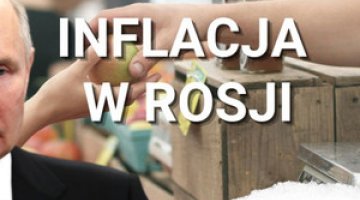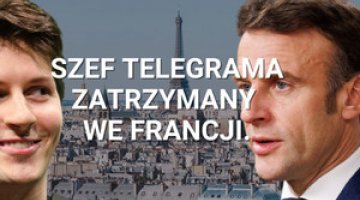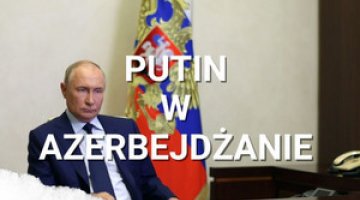Public reactions in Russia to the invasion of Ukraine
The military aggression against Ukraine has not provoked significant protests in Russia. Since 24 February, small anti-war demonstrations have been held in dozens of Russian cities; these have largely been spontaneous in nature, including protests by single individuals. The number of participants reached a maximum of several thousand in Moscow and St Petersburg (24 February). On the following days, according to available information, they numbered between a few to several hundred people on average.
Protesters are being detained en masse. The independent media project OVD-Info, which monitors human rights violations, reports that a total of almost 7000 people were detained from 24–28 February (most of them for taking part in actions on 24 February – almost 1980 people in 67 cities). On 28 February, according to preliminary data, 509 people were detained in 16 cities. There are reports of overcrowded detention centres in Moscow; hundreds of administrative cases have already been opened (the demonstrators face detention and fines), as well as the first criminal cases.
Russians are more willing to express their protest online. An anti-war online petition posted by the democratic Yabloko party had been signed by almost 80,000 people by 28 February. A call to immediately cease fire and withdraw the Russian army from Ukrainian territory, posted by human rights defenders on the Change.оrg website, had been signed by more than a million people by 28 February, although it is unclear how many of them are Russian. Similar initiatives by various professional groups are multiplying: artists and cultural activists, IT workers, doctors, academics, etc. More than 560 Russian NGOs and over 10,000 students and lecturers have appealed to Putin to end the war immediately. A proclamation to Russian citizens against the war was also issued by several hundred municipal councillors. Anti-war appeals have also been published by independent media outlets, including Dozhd TV (TV Rain). These are just some examples of the anti-war protests, as new initiatives and new signatures are appearing daily.
In addition, celebrities, artists, writers and musicians express their individual opposition to the war on their social media. Among them are such well-known figures as the writers Dmitry Glukhovsky and Boris Akunin. Dmitri Muratov, the editor-in-chief of the daily Novaya Gazeta (which is critical of the authorities) and the Nobel peace prize winner, has issued harsh statements against the Kremlin.
Prominent Russian oligarchs (Mikhail Fridman, Oleg Deripaska), several State Duma deputies (Oleg Smolin, Mikhail Matveyev and Vyacheslav Markhayev from the Communist party and Sangaji Tarbayev from the pro-Kremlin liberal New People party), as well as the family members of some Russian officials and businessmen, have also begun to speak out cautiously against the war (without criticising the Kremlin directly). These include Boris Yeltsin’s daughter Tatiana Yumasheva (whose daughter Maria appeared at an anti-war protest in London), the daughter and former wife of Kremlin spokesman Dmitri Peskov, the daughter of billionaire Roman Abramovich, Sofia, and the son of Rostec’s CEO Sergei Chemezov.
On 28th February the state sociological institute VTsIOM published the results of a poll on Russian support for the ‘special military operation’ in Ukraine. According to it, 68% of respondents ‘rather support’ it, while 22% were against. According to 26% of respondents, the purpose of the ‘operation’ is to protect the Russian-speaking population of the so-called Donetsk and Luhansk People’s Republics; according to another 20%, it was to prevent the deployment of NATO military bases in Ukraine. Also, a further 20% indicated that the aim is to demilitarise Ukraine and protect Russia’s borders, 7% said it was to ‘de-Nazify’ Ukraine and change its political course, while 4% stated it was to divide Ukraine and establish Russian influence on part of its territory.
Commentary
- While unequivocal anti-war attitudes seem to dominate among the liberal intelligentsia, including the artistic community, there is still a lack of comprehensive, reliable data on the mood among the broader Russian public. The government will most likely not allow the publication of any reliable surveys concerning attitudes to the war for reasons of ‘national security’, of which information warfare is an important element, according to the Kremlin.
- This was confirmed by the VTsIOM poll on attitudes to the invasion, in which the question was worded in a leading way (the war was referred to as the ‘special operation’, in line with government instructions). Although publications by state-owned opinion polling centres should be approached with great caution, the results of this poll (given the wording of the question) seem plausible. The level of support for the government’s actions should be assessed as moderately high – if we take into account the needs of an authoritarian regime. At the same time, it is high enough to be easily exploited for propaganda purposes, although the lack of a noticeable increase in support for the president in recent weeks (which remains below 70% on average) indicates that the aggression against Ukraine is unlikely to create a ‘rally round the flag’ effect. It should be concluded that the public’s attitude to the ‘operation’ is being influenced by the passive acceptance of Kremlin propaganda, the still prevailing indifference to the foreign policy agenda, and the focus on issues of day-to-day living. The latter have been worsening in recent days as a result of Western sanctions; this has been reflected, for example, in the unstable exchange rate of the rouble.
- Similar factors may also account for the small scale of protests so far. Sociological surveys of Russian attitudes to a hypothetical war conducted before the invasion showed fear of repression, but also an indifference to foreign policy and a susceptibility to the narrative that the West is to blame for the escalation. Nor can the influence of television propaganda, according to which Russia is not ‘invading’ Ukraine but ‘defending’ the Russian-speaking population from ‘genocide’ be underestimated. Another reason is the weakness of Russian civil society, which has been the target of unprecedented political persecution since 2021. The coming days will show whether these attitudes will noticeably change in the new reality when a real, full-scale conflict is underway – one which will prove extremely costly for Russia in both political and economic terms (not least because of the already severe effects of Western sanctions). One factor that could prejudice attitudes towards the government further would be a large number of Russian victims of the conflict – if the relevant information manages to reach the wider public (state propaganda has already begun to admit that Russian soldiers are dying in Ukraine, and that the local population is receiving their presence in Ukraine with hostility).
- The authorities are taking a number of measures to intimidate citizens and discourage them from active protest. The Investigative Committee and the Prosecutor General’s Office of the Russian Federation warned citizens against taking part in unauthorised actions, threatening them with criminal liability (in 2020, the constitutional freedom of assembly was in fact abolished in Russia). Peaceful demonstrators have been facing physical violence. On 27 February, the Prosecutor General’s Office announced that it would investigate any case of providing assistance to a foreign state to the detriment of Russia’s security in the context of the ‘special operation’ in Ukraine. This assistance can be financial, material, technical, but also ‘consultative and other’, meaning that it could even cover contacts between individuals to obtain reliable information from relatives living in Ukraine. This announcement seems to suggest that the laws punishing ‘state treason’ may be applied in such cases. This is one of the most serious crimes in the Criminal Code, which bears a penalty of up to 20 years in prison. The FSB department of the Moscow region and Moscow oblast has appealed to the public (probably targeted primarily at local Ukrainians) to report any contacts with possible Ukrainian spies under threat of criminal sanction. According to the FSB, Ukrainian secret services are increasingly using compatriots living in Russia for ‘intelligence and subversive activities’. The State Duma has also announced it is going to introduce penalties in the Criminal and Administrative Code for “the distribution of unreliable information about the activities, tasks and role of the Russian army and other formations during the special operations”.
- The Russian government plans to implement an increasingly strict information blockade regarding the invasion of Ukraine. Since many internet users successfully use anonymising tools (VPNs) to access blocked sites, it cannot be ruled out that attempts will be made to disconnect the internet in selected areas, primarily in large cities. Independent media or ordinary citizens who objectively report on the war or maintain contacts with Ukrainians will be not only targeted by mass smear campaigns calling them ‘spies’ and ‘traitors’, but some of them may face accusations of ‘state treason’. The ‘besieged fortress’ syndrome will be stoked from the top down. We should also expect the secret services to intimidate Ukrainian citizens residing in Russia.
- It must be assumed that the invasion of Ukraine will serve as a pretext for banning any free media and NGOs still existing which the authorities consider inconvenient. The Roskomnadzor media control agency has ordered the mass media to cover the ‘special operation’ in Ukraine only on the basis of official Russian sources. It warned that people would have to assume legal responsibility for ‘spreading fake news’. Talking about the war and providing reliable information about the course of the military invasion could result in heavy fines, criminal sanctions or blockades of websites. On 1 March, Roskomnadzor restricted access to two important independent channels, Dozhd TV and the Ekho Moskvy radio station. Previously, the websites of other media outlets such as Insider, Readovka, Nastoyashchye vremya, Tayga.info were also blocked. Internet users, especially in big cities, report problems accessing Facebook (FB), Twitter and Instagram. The head of the Presidential Council for Human Rights, Valery Fadeyev, has suggested that FB be completely blocked as long as the ‘special operation’ in Ukraine is underway. Some Kremlin-controlled propagandists have already started to call for independent Russian media to be punished for ‘betraying the state’ (referring to those who have condemned the war and are reporting objectively on the situation in Ukraine and the actions of the Russian army).




